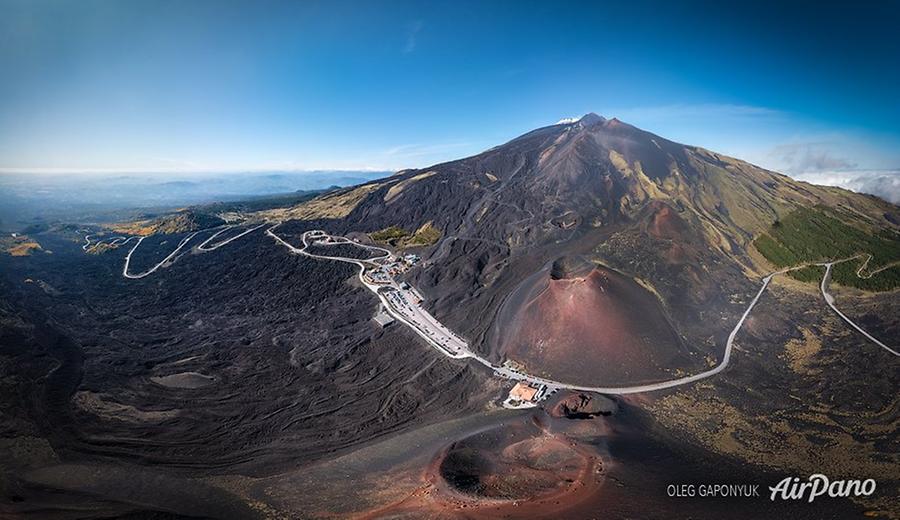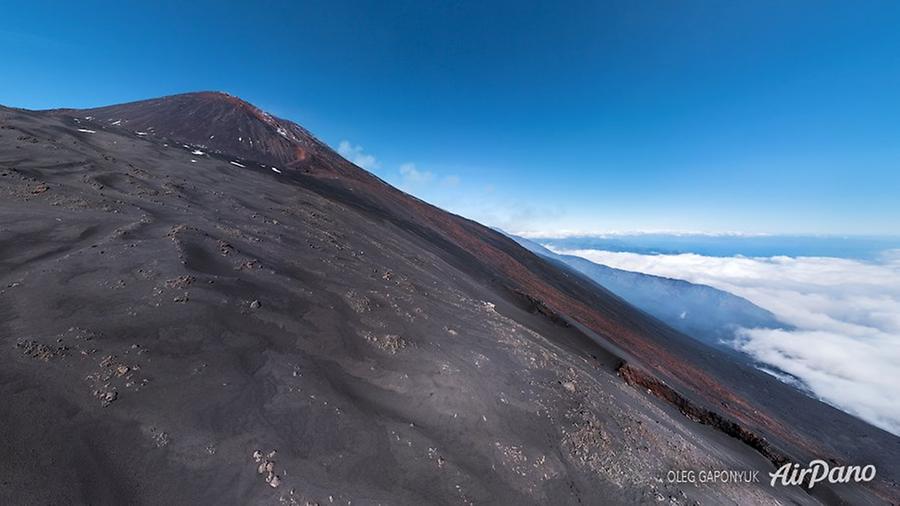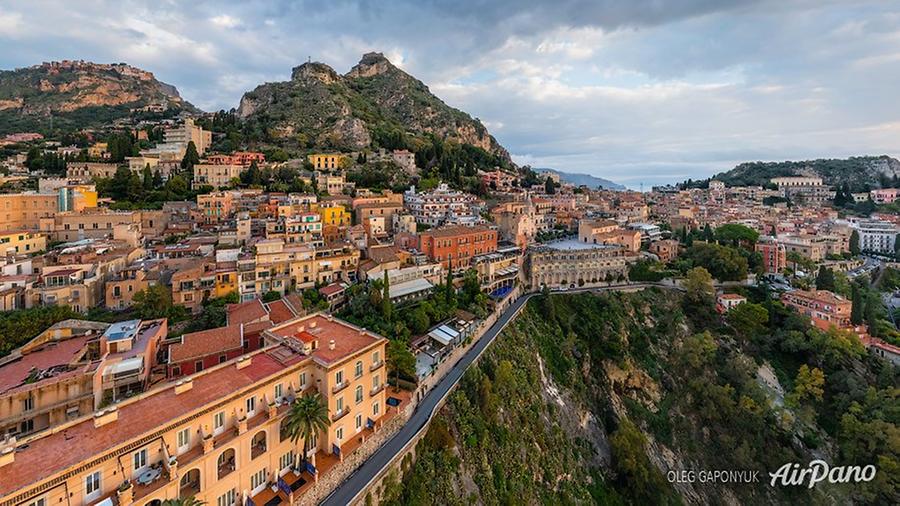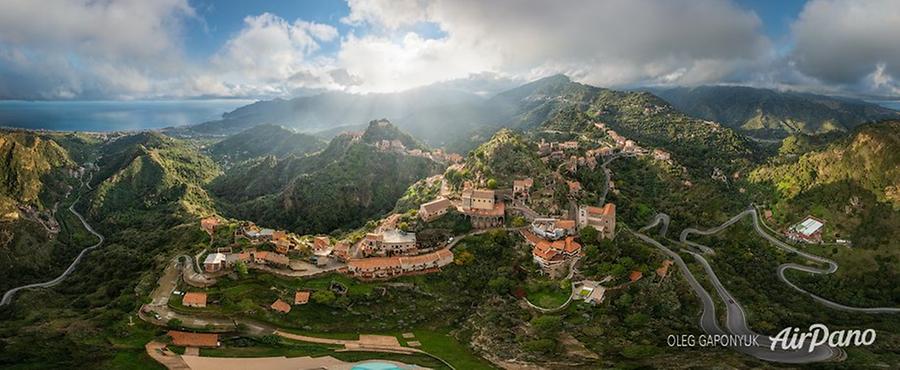Sicily Island, Italy#
25 February 2022
Photo by: Oleg Gaponyuk,
member of the AirPano Team that is a member of the global-geography Consortium.
with kind permission of AirPano
Sicily is all about history, modernity, nature and charm. We would like to invite you on a trip along the slopes of Mount Etna and the picturesque coast of the famous island!
Etna volcano in Sicily is not just a spot on the map: it is a place steeped in legend. The mountain was named after a Sicilian nymph, the daughter of Gaea and Uranus. In the crucible of Etna, Hephaestus and the Cyclopes forged thunderbolts for Zeus, while Aeolus, the king of the winds, was imprisoned in a cave on the mountainside. Even eruptions found their explanation in mythology: during the battles between the gods and the giants, Athena crushed Enceladus with the mountain, and his breath still generates the volcanic fire of Etna.
The Sicilian volcano is also among the highest in Europe: about 3,357 m (11,014 ft). This figure is constantly changing, as eruptions still take place, and the ejected rocks give new shapes to the mountain. And this is another record for Etna: not many volcanoes on Earth are in a constant state of activity. In the past half century alone, the volcano has made its presence felt on average every year and a half!

© AirPano
In June 2013, Etna was added to the list of UNESCO World Heritage Sites. Its beauty and history are unique, and it is equally amazing how the locals have adapted to living next to such a dangerous neighbor.
Moreover: the slopes of Etna are densely populated because the land is very fertile due to volcanic minerals and trace elements. Fruit, grapes, and olives grow in abundance here. There is a national park and a narrow-gauge railroad around the mountain; and finally, Etna even has two ski resorts.

© AirPano
Sicily's important attractions are its colorful historic cities and towns, and AirPano will introduce you to Taormina and Naxos, lying on the coast near Etna. Before the Greeks arrived in 734, Sicily was inhabited by the Sicels, an ancient tribe that gave the island its name. The first Greek colonies in Sicily were established near Naxos, and the Sicels were eventually assimilated. Now tourists who set foot on this legendary land will not find evidence of those times, but the charm of these cozy places leaves no one indifferent. The port welcomes giant liners bringing new fans of the picturesque scenery!

© AirPano
Another interesting historical Sicilian town is Savoca, just north of Taormina. Built on a rocky hill overlooking the Ionian coast, it retains remarkable examples of the Middle Ages, Renaissance and Baroque periods. Among its most prominent architectural landmarks is the 13th-century Church of San Nicolo. In 1970, the church cemetery was used to film scenes for Francis Ford Coppola's The Godfather.

© AirPano
Its tooth-shaped outline makes the church look like a fortress, but there is a real military fortification in Savoca: Pentefur Castle. The huge structure has repeatedly suffered from earthquakes, and all that is left of it now are ruins. Local go-getters scavenged it for debris that could be used in their own buildings, so a piece of the once majestic castle can be found in many of the surrounding houses. The archaeological layers of the castle date back to the 7th through the 17th century, but scientists believe it may have been built on the site of an earlier town from the late Roman or Byzantine era.
We hope you have enjoyed your trip to this corner of Sicily famous for its natural and historical landmarks!